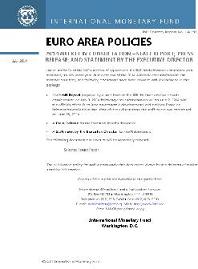Sassen, S. (2014) “European economy’s invisible transformation: expulsions and predatory capitalism“, Eurocrisis in the Press, LSE EUROPP, 03 July. Parts of our economies, societies, and states in Europe are being stripped bare by an extreme form of predatory capitalism. And this stripping can coexist with growth in much of our economies. The majority of workers and economic operations keep functioning, even if at reduced levels. The language of low …Read More
Making macroprudential regulation operational
Kashyap, K. A., Tsomocos, D. & Vardoulakis, A. (2014) “Making macroprudential regulation operational“, VoxEU Organisation, 18 July. Do the extant workhorse models used in policy analysis support macroprudential and macrofinancial policies? This column argues that this is not the case and describes a new macroprudential model that stresses the special role played by banks. The model also accounts for two, often neglected, key principles of the financial systems. Some …Read More
Trade policy issues in the Wider Europe – that led to war and not yet to peace
Emerson, M. (2014) “Trade policy issues in the Wider Europe – that led to war and not yet to peace“, EU Foreign Policy, CEPS Working Documents, 16 July. This paper looks at the trade policy landscape of the EU and the wider Europe, with a focus on issues arising from the signature on 27 June 2014 of Deep and Comprehensive Free Trade Agreements (DCFTAs) between the EU and three …Read More
The international role of the euro
ECB (2014) “The international role of the euro“, European Central Bank – Eurosystem, July. This report reviews developments in the international role of the euro in 2013, tracking a comprehensive set of indicators covering a number of different market segments. As in previous issues, the main focus is on measures of the euro’s relevance in financial markets, such as the use of the euro in foreign exchange reserves or …Read More
Euro Area Policies Staff Report for the 2014 Article IV Consultation With Member Countries
International Monetary Fund (2014) “Euro Area Policies Staff Report for the 2014 Article IV Consultation With Member Countries“, IMF Country Report No. 14/198, July. KEY ISSUES Context. Real output has expanded for four consecutive quarters, and financial market sentiment has improved markedly. But the recovery is weak and uneven. Inflation has been too low for too long, financial markets are still fragmented, and structural gaps persist: these hinder rebalancing …Read More
Lower import prices = 100% welfare gains? Not necessarily: don′t forget the impact of consumer taste and product quality
Benkovskis, K. & Woerz, J. (2014) “Lower import prices = 100% welfare gains? Not necessarily: don′t forget the impact of consumer taste and product quality“, VoxEU Organisation, 15 Ιουλίου. Import price statistics may not be a reliable indicator of welfare gains. They must adequately reflect the fact that consumers value variety, and that consumer tastes and product quality change over time. This column evaluates existing findings, and introduces new …Read More
Has the Great Recession killed the traditional Phillips Curve?
Wren-Lewis, S. (2014) “Has the Great Recession killed the traditional Phillips Curve?“, Mainly Macro Blog, 14 July. Before the New Classical revolution there was the Friedman/Phelps Phillips Curve (FPPC), which said that current inflation depended on some measure of the output/unemployment gap and the expected value of current inflation (with a unit coefficient). Expectations of inflation were modelled as some function of past inflation (e.g. adaptive expectations) – at …Read More
European Wage Depression Since 1999
Janssen, R. (2014) “European Wage Depression Since 1999“, Social Europe Journal, 30 May. Probably one of the most popular slogans of the entire European Semester is the catchphrase that wages should be aligned with productivity. The reason for its popularity is that this phrase can be used with a lot of flexibility. On the one hand, the Commission can make use of it to discipline wages and undermine national …Read More
Managing the Euro Area Debt Crisis
Cline, R. W. (2014) Managing the Euro Area Debt Crisis, Washington: Peterson Institute for International Economics, June. First came the financial and debt crisis in Greece, then government financing difficulties and rescue programs in Ireland in 2010 and Portugal in 2011. Before long, Italy and Spain were engulfed by financial contagion as well. Finally in 2012, the European Central Bank pledged to do “whatever it takes” to preserve the …Read More
Let’s get to Work! The Future of Labour in Europe
Beblavý, Μ., Maselli, Ι. & Veselkova, Μ. (2014) “Let’s get to Work! The Future of Labour in Europe“, Economic Policy, CEPS Paperbacks, 10 July. Work is both an essential part of our daily lives and one of the major policy concerns across Europe. Yet the public debate of labour issues is all too often driven by political rhetoric and short-term concerns. In this volume, researchers from seven European countries …Read More









